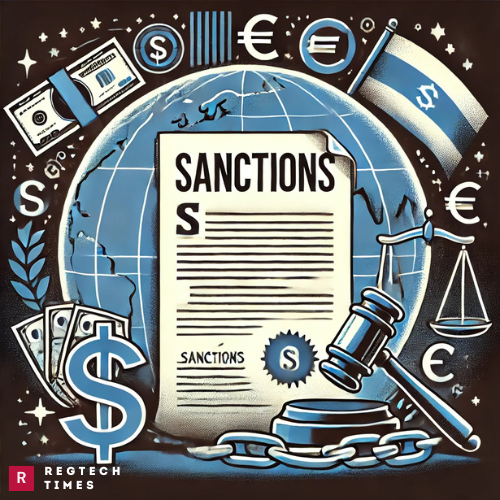In a move making waves across Europe, the United States recently placed sanctions on two Swiss lawyers accused of helping Russian clients secretly move large sums of money. These lawyers, Andres Baumgartner and Fabio Libero Delco, allegedly helped Russian groups shift money into Switzerland by setting up companies designed to hide where the money came from. This crackdown is part of the United States’ ongoing efforts to limit Russia’s influence following its invasion of Ukraine.
The U.S. government claims these lawyers used their expertise to create legal structures, known as shell companies, that make it hard to track the true owners of the money. These shell companies allow people to hide funds and assets from authorities, sometimes helping them bypass sanctions meant to keep Russia economically isolated. By targeting these lawyers, the U.S. aims to cut off Russia’s ability to access international money despite strict sanctions.
The Role of Swiss Lawyers in Russian Money Transfers
The two lawyers, who operate in Switzerland and nearby Liechtenstein, have been accused of being “important business and cash flow facilitators for Russia.” The Office of Foreign Assets Control (OFAC), the U.S. body that enforces sanctions, claims Baumgartner and Delco played major roles in helping Russian-linked clients manage their assets through secretive methods. OFAC said this is the first time the U.S. has sanctioned Swiss lawyers over their ties with Russia.
Baumgartner and Delco reportedly used their positions to help Russian clients create shell companies in Switzerland. These shell companies do not operate as real businesses; instead, they are essentially empty “letterbox” firms that exist only on paper. Many times, these firms are registered to one address and have no employees or physical offices. They allow money to move from one place to another with very little oversight. The goal of such setups is to hide who actually owns the money, making it difficult for governments to trace the funds back to Russia.
While these types of shell companies are technically legal in many countries, the U.S. government says they are often used for illegal activities, including hiding “dirty” or “laundered” money. The recent sanctions make it clear that the U.S. intends to go after not only the people directly benefiting from the funds but also the intermediaries—like lawyers—who help set up the systems that make it possible.
Switzerland’s Banking Secrecy Under Pressure
Switzerland has a long history of banking secrecy, which allows clients to hide their financial information from others. However, after recent international pressure, the country has made some changes. Swiss banks no longer keep everything completely private, but loopholes remain, especially when it comes to shell companies and trusts. Many Swiss laws still allow these structures to be created and maintained without revealing who truly owns them.
Switzerland’s Stand: Excluding Swiss Subsidiaries from Russian Sanctions
In response to the growing concern over hidden assets, Switzerland’s parliament is now debating a new law to increase transparency in company ownership. This proposed law would create a “beneficial ownership” registry, which would reveal the names of the real owners of companies, making it harder for people to hide behind shell companies. The draft law would also require lawyers to report suspicious transactions or face legal consequences. However, parts of the law, especially those that would require lawyers to exercise more caution, have faced resistance. Some Swiss lawmakers and lawyers feel this goes too far, arguing it could negatively impact legitimate business activities, like property or merger transactions.
U.S. Efforts to Curb Swiss Legal Loopholes
The U.S. has been pushing Switzerland to close what it sees as dangerous loopholes that allow wealthy Russians to escape sanctions by using Swiss legal structures. In recent meetings with Swiss officials, U.S. diplomats and Treasury Department members expressed their concerns. They urged Switzerland to strengthen its anti-money-laundering rules, arguing that the Swiss legal system makes it too easy for Russian assets to be hidden.
The issue of shell companies is not limited to Russia. According to recent data from Swiss watchdog group Public Eye, there are roughly 33,000 shell companies in Switzerland, with a high concentration in areas like Geneva, Ticino, and Zug. This number is significant, given that Geneva alone has one shell company for every 37 people. Critics argue that Switzerland’s system remains one of the world’s most favorable places for those looking to move or hide their money.
Additionally, U.S. authorities are not just focusing on lawyers. They have also targeted a Swiss company named ZG Optique SA, which develops specialized optical equipment. This company was sanctioned for working closely with Russian defense contractors, including a company named Katod that produces night-vision goggles. According to OFAC, ZG Optique has supplied precision instruments to Russian clients, even those tied to sanctioned companies associated with Russia’s military. By cutting off this connection, the U.S. aims to restrict access to advanced technology that could be used by Russia in military operations.
Switzerland’s Finance Ministry has yet to comment on these specific sanctions, stating only that it generally supports the proposed changes to Swiss law that would improve transparency in financial and legal services. Meanwhile, the law is expected to face more debate in the Swiss parliament, as politicians decide how much they are willing to alter Switzerland’s traditional stance on financial secrecy.
The U.S. sanctions have sparked discussions within Switzerland and beyond, shedding light on the role that legal and financial advisors play in moving money internationally, especially during times of political and economic conflict.


